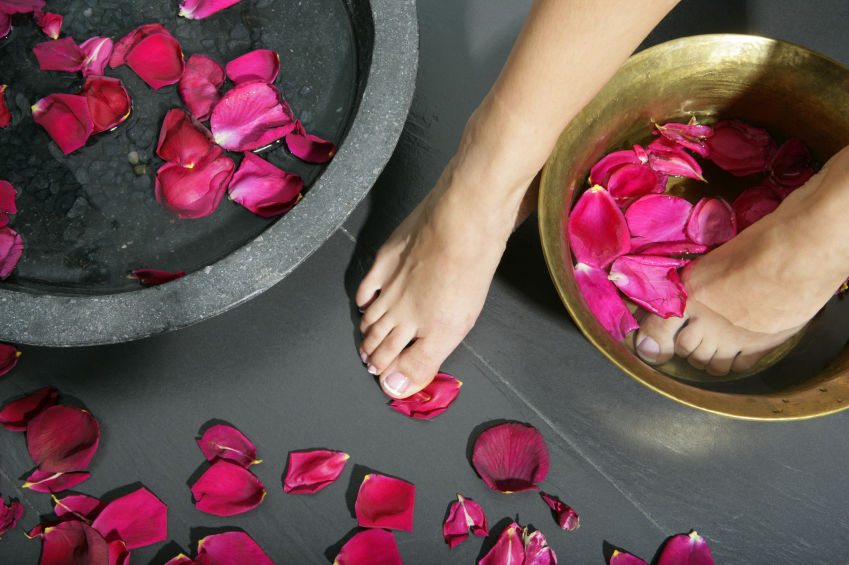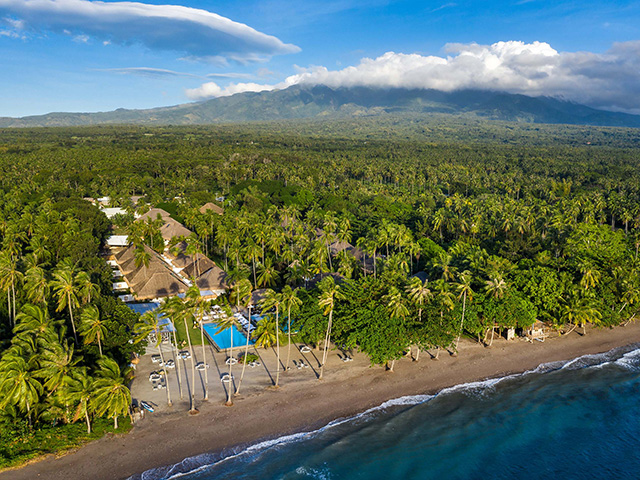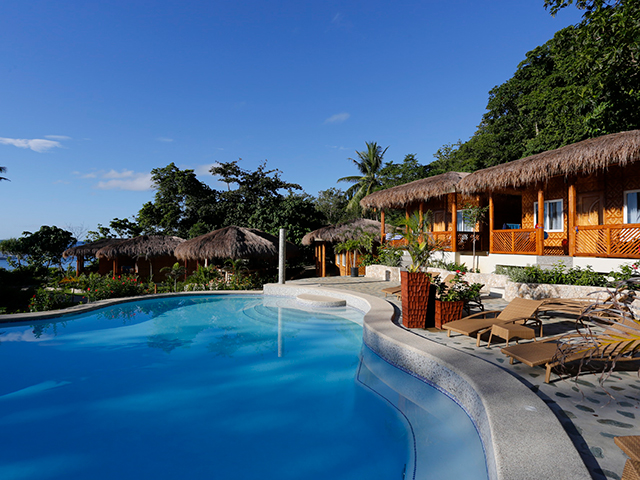
Healing Arts with a Seaside Setting
Sea breezes and salt air set the stage for a journey to relaxation and return to wellness. In quiet sanctuaries, skilled practitioners administer touch therapies that draw on both Asian and European traditions. Offerings include expected pleasures such as massages, scrubs and facials, but also on the menu are alternative therapies such as whole-body detoxification rituals, water shiatsu and reflexology. These are the healing arts as practiced in the spas of the Philippines. These traditions can be enjoyed at select beachfront resorts, where spa time is complemented by fine dining to nourish the body, attentive service that releases all stress, and recreational pursuits that rekindle the spirit.
Highlights
- Best for: Solos, couples and budget to luxury
- Best season to visit: Year round, with coolest and driest temperatures from Dec through June
- Weather: The Philippines is usually hot and humid. There are three seasons: tag-init or tag-araw, the hot dry season or summer from Mar - May; tag-ulan, the rainy season from June - Nov; and tag-lamig, the cool, dry season from Dec - Feb
Philippines Information
Spa and Wellness in the Philippines Overview
Many of the best full-service spas in the Philippines are associated with beach resorts. Two areas that have earned a reputation as prime destinations for relaxation and spa services are along the beaches of Puerto Galera, and in the coastal region near Dumaguete, which is known in the Philippines as “the city of the gentle people.”
Spa and Wellness in the Philippines Tips
Choose the right resort and the wellness and relaxation don't have to end when a spa treatment is completed. Among the additional experiences offered at select resorts are yoga seasons, nature walks, meditation and life coaching, along with healthful cuisines that promote health and beauty from within.
Best Places for Spa and Wellness in the Philippines
Near the coastal town of Dumaguete, the spa at Atmosphere is known as one of the best in Asia. The grounds feature outdoor pavilions set in a tropical flower garden where flowing streams fill tranquil pools. In the heart of Puerto Galera's Sabang resort district, the open-air spa at El Galleon features native woods and stone to create a quiet oasis for treatments and relaxation.
What to Pack for Spa and Wellness in the Philippines
Pack a good book and fill the smartphone with a relaxing playlist—then set it to airplane mode. A tote to carry plenty of water for hydration. Bring slippers and sandals that are easy to take off for beach walks, and a light cover-up so you don't have to change between beach, room and spa.
Resorts

Philippines
Atmosphere Resorts & Spa
Indulge yourself and surrender to Atmosphere where the warmest of Philippine hospitality is combined with first class amenities and service to bring you an unforgettable experience within the stunning Philippine archipelago. Beautifully situated within an old seven-acre coconut plantation on the island of Negros, Atmosphere enjoys a spectacular beach front location alongside the warm coastal waters of the Philippine Sea.
Optional add-ons for Watersports Activities and Topside Activities available in the shopping cart after room category are selected.
Book on-line or Contact Caradonna Adventures at 800.328.2288 or email us sales@caradonna.com.
See Packages & Learn More

Philippines
Magic Oceans Dive Resort
See Packages & Learn More

Philippines
El Galleon Dive Resort
See Packages & Learn More
Passport and/or Visa Requirements
Entry Requirements: All U.S. citizens are required to have a valid passport. Your passport must contain at least one blank page for entry stamp and proof of onward or return airline ticket may be required. Visas upon arrival are issued for 30 days for tourist stays.
Exit Requirements: All persons leaving the Philippines pay a Government Departure Tax of approximately USD $17.
Immunizations
There are no required vaccines for entry into the Philippines, although you should always check with your doctor and the Centers for Disease Control on recommended vaccinations for travel at cdc.gov.
Culture and Customs
The Philippines are a blend of East and West. Centuries of Spanish and US influences mix with Asian cultural traditions and cuisines. Sophisticated urban centers such as Manila contrast with village life in small fishing communities and mountain settlements. Music is a common love that unites Philippine people of all ethnicities and cultural backgrounds, whether the performance takes the form of a spirited karaoke rendition of a pop favorite or a traditional rondalla. It is a culture where people are quick to sing, laugh easily, and place high values on family, friendships and hospitality. Clear waters and spectacular beaches attract vacationers to coastal resorts, while adventure-minded travelers have a wide range of activities to choose from. Nature lovers can trek, bike or bird in one of the world's most diverse biospheres, home to nearly 80 percent of the world’s plant and animal species. Though better known for its beaches, the Philippines is also a land of towering mountains, with peaks rising to heights of more than 9,000 feet. In addition to trekking and climbing, the highlands provide thrilling whitewater rafting and paddles through underground rivers. Indigenous wellness traditions live on in healing arts such as Hilot touch therapy and Dagdagay foot massage and in the traditional greeting of “Mabuhay,” which is a wish for good health, peace, and harmony.
Electricity, Phone and Internet Access
Electricity in the Philippines is 220 volts, 60 Hz, so an adapter will be needed for U.S. visitors. If your electronic device does not accept 220 V input, you may also need a step down transformer.
The country code for the Philippines is 63. Check with your cell phone provider for International plans which may include text, data and voice. Many hotels offer WiFi.
Water Quality
The water is safe to drink at the larger chain hotel and in major cities, which offer purified water, but it is recommended to drink bottled water while in the Philippines.
Language & Currency
The Philippines is the 3rd largest English-speaking country in the world. Tagalog (Filipino) is spoken by nearly 1/3 of the population as a first language and as a second language by the other 2/3 of the population. Filipino is the official language of education, but English is also an official language. The local currency is the Philippine Peso (PHP) but U.S. dollars are accepted in most places. Check the currency rate here.
Time
The Philippines observe Philippines Time or PHT which is 8 hours ahead of Greenwich Mean Time (+8 GMT). The Philippines does not observe daylight savings time.
Location, Size and Population
The Philippines are located in Southeast Asia, in the Western Pacific Ocean, east of Vietnam and northeast of Malaysia. The Philippines are made up of 7,107 islands. The three main islands are Luzon in the north, the Visayas in the Central Region and Mindanao in the South. The capital city of the Philippines is Manila. The islands take up approximately 115,830 square miles. The islands vary in size with Luzon being the largest at 42,458 square miles, it is also the 15th largest island in the world and the 4th most populated island in the world, to some of the smaller places like popular Dumaguete, which is only around 13 square miles and located in the Visayas.
The population of the Philippines is over 102 Million (2016).